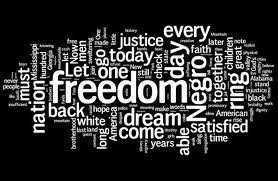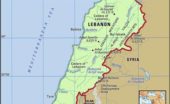Re Ian Bremmer 'Could third-party candidates upend the 2024 US election?' 3 April The current political movement in the USA…
Wednesday Night #1643
Written by Diana Thebaud Nicholson // August 28, 2013 // Reports, Wednesday Nights // 1 Comment
The full house included Robert Landori‘s guest, Quebec film pioneer André Link, co-founder of Cinepix, and later, chairman of Lions Gate Entertainment; and Rachel Bendayan‘s guest, Cameron Ahmad, Concordia journalism student and President of the newly revived Young Liberals of Canada (Quebec).
Diana noted that Wednesday Night #1642.5 had been held some 12 hours previously in Singapore where Marc and Jean Nicholson entertained David and Christine Oliver for dinner along with Diana’s cousin, Admiral Cynthia Thébaud, now stationed in Singapore. [Subsequent accounts confirmed that the conversation was as wide-ranging as any Wednesday Night might claim.]
The Liberal Party of Canada
When it was pointed out that today it was announced that Trudeau Liberals Won’t Share Concrete Policy Proposals Until 2015 , Cameron and Rachel [who is the LPC’s Constitutional and Legal Adviser (French)] ably defended the Party’s position, explaining that while the election platform would not be made public before 2015, a number of positions would be confirmed over the coming months. There is, of course, the concern that if the Liberals were to unveil a platform today, the Conservatives would attack – and distort – it for the next two years. The underlying values of the LPC detailed in the 20 year-old Red Book remain by and large the guiding principles.
Kimon reminds us that the Liberals did not win that election because of the Red Book; they won because the people wanted change. Some believe that today Stephen Harper and his Conservatives are on a similarly self-destructive path to Mulroney’s in ’93. Peaking too early in the run-up to the election could be fatal. Policy statements at this stage will be quickly forgotten. Therefore, Justin Trudeau’s no-policy policy is likely a winning strategy.
The redistribution of seats that will come into effect in the 2015 election gives Alberta and BC , Ontario and Quebec additional seats, increasing the number in the House of Commons from 308 to 338. The key question will be whether the results of the 2012 Calgary Centre by-election indicate a trend that can be built on by the left-of-centre.
Syria, Egypt and the Middle East
The worst choices are not between good and bad, but between good and good, or bad and bad. That said, in Syria it seems that all the people in contention are bad guys. Although the media was quick to attribute the recent attacks with chemical weapons to President Bashar al-Assad, it is difficult to see what advantage he would have gained from them. (Doubts surround Syria chemical weapon attack; no ‘slam dunk’ Assad ordered it, say experts) In some views, the person responsible is more likely an overzealous rogue general or one with his own ambitions.
P R O L O G U E
We salute our Faithful Scribe, Herb Bercovitz OWN, who celebrated his 89th birthday on Sunday and, at the same time, mourn the passing of our dear friend Udo Stundner OWN.
Jim Mylonas will be with us and will discuss the latest Bank Credit Analyst GPS (Geopolitical Strategy) Report which covers a wide range of topics: – CHINA, EUROPE, SWITZERLAND, EGYPT, ISRAEL – AND INCLUDING COMMENTARY ON IRAQ (GENERALLY A NEGLECTED TOPIC AS EVERYONE FOCUSES ON EGYPT AND SYRIA).
Iraq is far more relevant than Syria. Not only is it the second largest OPEC producer, but it also serves as a strategic buffer between Shia Iran and Sunni Saudi Arabia. For Saudi Arabia and Iran, Syria is the proxy war of choice; while Iraq would be a proxy war of necessity.
We expect sectarian violence in Iraq to intensify, especially as Syria becomes a lost cause and many Sunni militants return (some back home) to wage an insurgency against the Shia dominated Baghdad.
The news is more and more depressing each day.
The Middle East
Syria and Egypt vie for top news story, with Syria winning out this week because of the horrific news of the use of chemical weapons. Turkey having chimed in to accuse Israel of fomenting the chaos in the Middle East, now worries about the possibility of retaliatory attacks should NATO intervene in Syria.
Politicians and pundits of various nationalities and persuasions clamour for action, although unable to define what action would be appropriate/acceptable to them – all prompting sometime-Wednesday Nighter Dr. Charles Cogan to remind his readers of the words of Prince Talleyrand, Il est urgent d’attendre (see Don’t Just Do Something, Stand There!). And Project Syndicate, responding to the general uncertainty, has seen fit to republish Joseph Nye’s The Intervention Dilemma
It seems more and more likely that the U.S. will intervene but not without backing from allies and even Russia, according to the Christian Science Monitor, will not weigh in on Assad’s side.
As though the situation in Syria and in Egypt were not sufficiently worrisome, the Israel/Palestine peace talks have been postponed
Climate change
Several articles on the precarious situation of coastal cities have followed the publication in Nature Climate Change of a report quantifying present and future flood losses in the 136 largest coastal cities and identifying the causes as growing populations and assets, the changing climate, and subsidence. In Goodbye, Miami RollingStone offers a lengthy and well researched argument that Miami indeed merits the designation by the OECD as the number-one most vulnerable city worldwide in terms of property damage, with more than $416 billion in assets at risk to storm-related flooding and sea-level rise. Furthermore, loss of drinking water will be one of the first consequences of the rising seas.
Water, as a geopolitical marker, has been a WN preoccupation for several years. The recent Project Syndicate article on The Battle for Water echoes many of the concerns highlighted by Cleo Paskal over the years
“The sharpening international geopolitical competition over natural resources has turned some strategic resources into engines of power struggle. Transnational water resources have become an especially active source of competition and conflict, triggering a dam-building race and prompting growing calls for the United Nations to recognize water as a key security concern.”
All are highly recommended reading.
Canada
We are ever more grateful that we live in Canada where political feuds at their worst are rarely conducted through anything more toxic than the sniping of pundits and attack ads, which in fact, despite politicians’ gleeful claims, tend to turn the majority of the populace off. Case in point may be Justin’s admission that he has smoked pot and Peter Mackay’s rapid fire accusation (pot shot, of course) that he has broken the law. He hasn’t.
The exception to our favourable review of Canadian politics would of course be the singularly divisive policies of Madame Marois’ PQ and most especially the proposed Charter of Quebec Values. Julie Andrews she is not – there isn’t even a hint of a spoonful of honey.
At least one figure in the Senate scandal is now gone, with the announcement that Mac Harb has resigned. It is galling that he ‘retired’ with full pension – why couldn’t the government garnishee his salary/pension and other goodies? And the same for Brazeau, Duffy and Wallin??
[Senate loophole lets senators keep pensions despite conviction — Senators who are convicted of an indictable offence can be ejected from the Senate and lose their parliamentary pensions. But if they resign before that happens, they are entitled to all of the benefits they have accrued.]
At the other end of the scale, we note that Raymond Bachand is leaving politics. He has always been a bit of a mystery to us, given his professional background and political allegiances, but has served honourably and his departure will leave a big hole in the QLP’s economic policy.
I have a dream
 As this Wednesday is the 50th anniversary of Martin Luther King’s “I have a dream” speech, we propose to lift your spirits by first reminding ourselves of the great advances that have been made in the U.S. in terms of social equality, – although, as several panellists on Sunday’s Meet the Press observed – not yet achieving economic equality.
As this Wednesday is the 50th anniversary of Martin Luther King’s “I have a dream” speech, we propose to lift your spirits by first reminding ourselves of the great advances that have been made in the U.S. in terms of social equality, – although, as several panellists on Sunday’s Meet the Press observed – not yet achieving economic equality.
The excellent panel had several thoughts that resonated with us; in particular Newark Mayor Cory Booker’s comment that ‘The power of the people is greater than the people in power‘ – and representative John Lewis, when asked what he expected of the President:
The president is the president. He’s not a civil rights leader. There’s a difference. … when I met with President Kennedy and later with President Johnson, … they would say, “Make me do it. Make me say, ‘Yes’ when I may have a desire to say, ‘No.’ Create the climate, create the environment. It is left up to the civil rights community to get out there and push and pull.”
There are many parallels between the struggle for racial equality in the U.S. and the struggle to overcome different injustices in other societies and nations. There are also immense differences. In some cases, there are clearly perceptible injustices, in others, the perception is seemingly in the eye of the beholder.
We invite you to complete the sentence I have a dream and share it with us either in person, or by sending us your thoughts.
Final notes:
Appropriate to the theme of I have a dream John Jonas suggests that all join in the campaign to nominate Malala for the Nobel Peace Prize (see the petition started by Muslim-Canadian journalist Tarek Fatah at change.org). While all the federal Canadian leaders have signed on, there is still much to be done in other countries. Please consider signing and forwarding to friends abroad; you will find all details on the petition post. For more information about the astonishing success of the petition, there’s a good article on HuffPost by Jordy Gold
On behalf of the Canadian International Council and Kyle Matthews, President of the Montreal branch, we are delighted to invite you to attend a half-day international business conference titled Canada and Free Trade with Asia on September 24th. An impressive roster of speakers is lined up and the format permits lots of exchange and questions. Did you know that Canada is currently juggling the negotiation of trade agreements with more than 60 countries?
Paul Shrivastava alerts us to the next Distinguished Speakers Series Presentation of the David O’Brien Centre for Sustainable Enterprise; it is taking place on Thursday, September 27th at 11:00 am to noon at Concordia University in the John Molson School of Business (1450 Guy Street, room MB 6.260)
David Wasieleski will present:
The Evolution of Sustainability Ethics: The Interplay Between Ecologizing Values and Technology.




One Comment on "Wednesday Night #1643"
A follow-up on the post-WN conversation re Syria.
Kimon and John raised a number of interesting points re Syria which I’ll take a shot at threading Kimon mentioned that Assad felt distrustful of his military. Iraq did give other countries the idea that a ME strongman could be toppled, as John suggested. But let’s not forget that he [Saddam Hussein] was largely toppled not by a popular movement, but by a US military that was looking for any excuse to intervene. It did, however set a precedent for ME dissidents who wished to precipitate Western military intervention: Claim to represent a popular movement, fabricate some evidence to suggest war crimes … .
The Syrian (Sunni) rebels, like everyone, were aware of what happened in Iraq. More recently, they’d watched what happened February 2011 in Egypt, where only after a couple of weeks one of the longest reigning ME leaders conceded to protesters’ demands. Only a few months later, they saw Western military intervention in Libya topple another of the longest reigning ME leaders (and saw him brutally murdered at the hands of his captors).
They figured all they’d have to do was hold out a little while and Assad would either step aside as Mubarak did, or he would crack down on them, in which case they could count on the Western military intervention as happened in Iraq and Libya.
Unlike Assad, Mubarak stepped down with full confidence that the military would not let anything happen to him (and he was right). Without that same confidence, Assad likely never seriously entertained the notion of stepping aside (for the same reason, he likely would have been suspicious of any country’s offer of asylum/refuge).
So the Syrian rebels went to plan B. They set off a small chemical discharge a few months ago to gauge Western reaction. They got their ‘red line’. And the rest is pretty much as a few WNers (your truly included) believe it went…
John’s point re the unintended consequences of Iraq is well-taken. Now if the US doesn’t intervene, the question will be why Iraq and Libya, but not Syria. The real answer is obvious, and the subject of much of the GPS report: — Oil. But the US administration can’t come out and explicitly say that. But at the same time they can’t back down from their ‘red line’ rhetoric, lest the world’s policeman lose face. They put themselves in a lose-lose situation.
And it all indeed does go back to Iraq